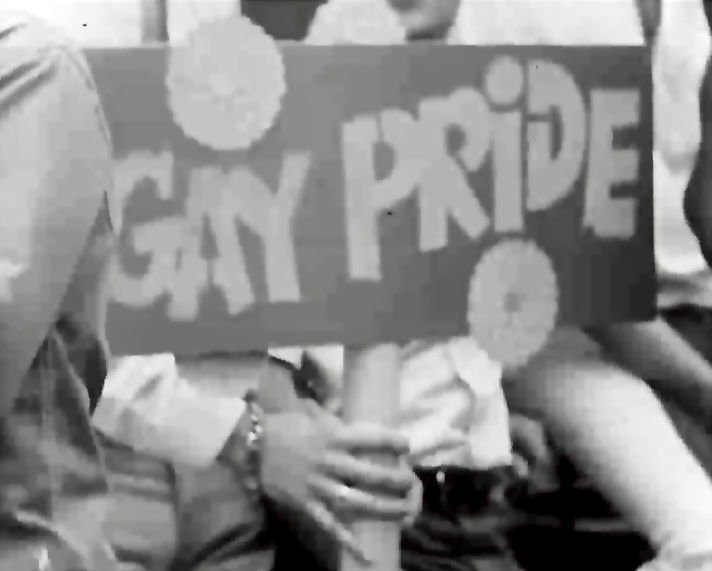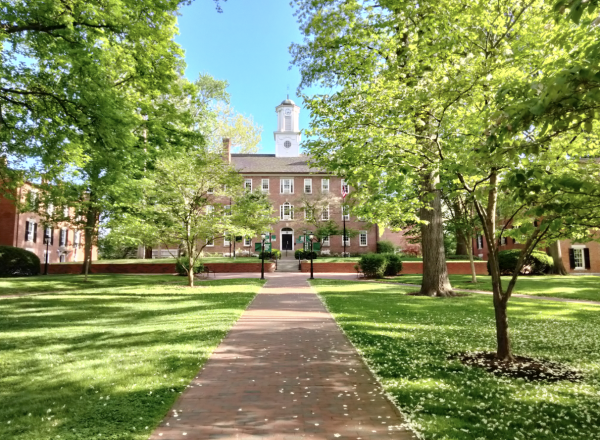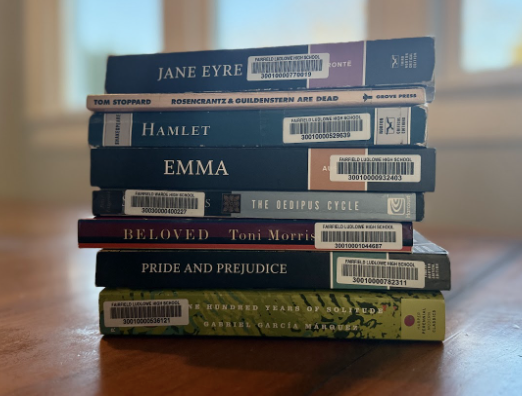“Say Gay,” Even if Your Classroom Will Not
Image from footage of one of the earliest Gay Pride demonstration marches, the first Christopher Street Liberation Day Parade, held on June 28, 1970 in New York City, New York, to commemorate the first anniversary of the Stonewall Riots. This bill in Florida in 2022 is just another instance of the LGBTQ community fighting for their rights and coming together to stand against discrimination while taking pride in their identity.
The Florida Senate recently introduced a controversial bill: the “Don’t Say Gay” bill. It is formally titled the “Parental Rights in Education” bill, SB 1834, but has been widely nicknamed. The bill determines when and how school staff can discuss gender and sexual orientation in the school setting in attempts to ensure that instruction is at an “appropriate age” and to “empower parents” in their children’s learning. Instruction on such topics would not be allowed between K-3 grades, potentially violating teachers’ First Amendment rights to freedom of speech. The Florida House of Representatives voted for the bill to move forward to the Senate with a vote of 69-47 on February 24. The bill has since passed the Senate on March 8.
The bill, HB 1557, revolves around the idea that parents should know what their children are being taught. It notes that parents have the fundamental right to make decisions on how they raise their children. It then goes further to emphasize that parents should be well aware of decisions made in school and how they influence their child’s mental, physical, and emotional being. The bill then prohibits the discussion of sexual orientation and gender in certain grade levels, or when it is considered inappropriate, creating the potential of “no appropriate time” to discuss LGBTQ topics during K-12 learning. While the entirety of the bill does not target LGBTQ discussion, as much of it focuses on parents role in how their children are raised and what they learn in their formative years, it increases the stigma around open discourse regarding sexual orientation and gender.
Politicians have taken time to respond to the bill: Representative Carlos G. Smith tweeted “As expected, the #DontSayGayBill just passed the Florida House, but SEVEN Republicans crossed party lines to vote against it.” It has become a rare sight to see politicians in the current day stray from partisan voting, especially on controversial issues. So the actions of these representatives makes it clear that even Republicans, who tend to stray away from LGBTQ alliances, also feel this bill takes it too far. President Biden also voiced his opinion on the bill: “I want every member of the LGBTQI+ community—especially the kids who will be impacted by this hateful bill—to know that you are loved and accepted just as you are.”
When the bill was up for debate in the Florida Senate, Shevrin Jones, the first openly LGBTQ member of the Florida Senate, attempted to make an appeal for the bill to be shot down. While speaking to Florida’s largely Republican Senate, Jones tried to explain that this bill could could forcibly “out” LGBTQ+ students. Speaking from personal experience and mentioning his own memories of coming out publicly, Jones was emotionally pleading with his audience so that they could try and understand his point of view. He told Senators, “Seeing these kids, I don’t think y’all understand how much courage it takes to show up every day.” This bill would make many children’s lives even more difficult, but those for the bill do not seem to understand that and seem to weigh parental rights over what is in a child’s best interest.
While this bill has found success in the Florida House and Senate, students, those who the bill directly impacts, will not let it pass in silence. Members of Gen Z have organized protests against the bill at their schools and in their communities, and have also traveled to Tallahassee, Florida’s capital, to meet with lawmakers and argue vehemently against the bill. Will Larkins, a Florida teen who organized and led a walkout of more than 500 students at his central Florida high school, watched as students chanted “We say gay!” Larkins says that he wants to show that “what [people in power are] doing doesn’t represent [students], especially marginalized groups.”
High school senior Jack Petocz, who also organized walkouts both at his school and statewide, was suspended “indefinitely” for distributing Pride flags during a demonstration. However, Petocz will not let this suspension affect his spirits. He plans to continue to advocate against the bill while at home and said in a statement on Twitter, “I am proud of who I am and I am proud of all of those protesting these regressive bills. We must let our politicians know that no matter how hard they try, they cannot suppress our identities or silence our voices. Gen Z will not stand idly by as our rights are stripped from us.” As students wave Pride flags, raise rainbow signs, and shout “We say gay!” across the state, it is obvious that the Florida legislature does not represent children and their desires.
Not only are many youth opposed to the bill, but it is likely to lead to detrimental affects for youth who do not identify as cisgender and/or straight in Florida. LGBTQ youth face great disparities when it comes to mental health and school climate, and this bill only can worsen the statistics. Data has shown that 43% of transgender youth have been bullied on school property, while 29% of transgender youth, 21% of gay and lesbian youth, and 22% of bisexual youth have attempted suicide. These statistics are alarming and devastating already, so it is heart wrenching to consider how a bill like this one can worsen the numbers.
But LGBTQ youth are more than just statistics; they are people trying to navigate their formative years and by passing bills like this, that navigation becomes increasingly difficult and dangerous. We know the statistics, so why and how can we allow this to happen to helpless children?
The Trevor Project, a nonprofit organization providing support for LGBTQ youth, has also taken a look into the role of school instruction on the wellbeing of young LGBTQ people. The organization found that students who learned about LGBTQ issues and people in the classroom were 23% less likely to attempt suicide in the past year. LGBTQ history includes the lessons of the Stonewall Uprising and landmark Supreme Court cases, like Obergefell v. Hodges and Bostock v. Clayton County. When students feel seen and heard, and can relate in some facet to the education that they are receiving, they become hopeful for their own futures. By taking this away, and telling kids that their identity could be deemed “inappropriate,” it is implying that they should be ashamed in some way for something they cannot even control. US Secretary of Transportation Pete Buttigieg, who is a gay man himself, said the bill will contribute to “shocking levels of suicidal thoughts, and suicide attempts among LGBT+ youths” as the legislation “tell[s] youths who are different, or whose families are different, that there is something wrong with them out of the gate.”
One aspect of the bill that cannot be ignored is how incredibly hypocritical it is. While one portion of the legislation is focused on having parents and the school work together to check in on students’ well-being, the other end of it focuses on prohibiting conversations that are crucial in ensuring that LGBTQ youth are able to feel pride in who they are. In a way, it is encouraging to see the topic of mental health to be brought to the fore front of schools, but this law is only focused on the well-being of straight cis-gendered students. The statistics make it ever so clear that taking away the discussion of LGBTQ topics actively harms the wellbeing of LGBTQ youth. While this bill pulls one way, towards more discussion of mental health and well-being, it pulls even harder in the opposite direction, towards increased stigma of LGBTQ and the potential to place the mental health of LGBTQ youth in grave danger.
The history of LGBTQ folk in America is a part of American history and the identity of so many. A study done by Gallup shows that 21% of Generation-Z adults identify as LGBT. Also, a record 7.1% of Americans self-identify as LGBTQ, the highest percentage since Gallup began tracking in 1996. So by erasing this history from classrooms and hiding it from an increasing amount of LGBTQ youth only increases stigma. Furthermore, stigma is often internalized from a young age; the foundation of our learning sets up our beliefs and how we continue to learn for years to come. By declaring one’s gender or sexuality too “taboo” to learn about, we actively increase internalized stigma within the children of America.
The language with the bill also makes it incredibly problematic: it is too vague to understand when it is considered “appropriate” to introduce open discussion of LGBTQ folk and issues. For example, Rep. Joe Harding, the Republican who introduced the bill back in January, said the bill would not prohibit students from talking about their LGBTQ families or prohibit classroom discussions about LGBTQ history. Instead, the bill, apparently, prevents the “instruction” of LGBTQ topics, but what is deemed “instruction,” and thus bad, and what is deemed “okay”? Where is the line between curriculum and conversations?
This vague language can result in students reaching their senior year of high school, entering the adult world, with little to no education on LGBTQ history. The bill is doing a disservice to all students. One can argue that students who want to learn about such issues can do so outside of school, but those students, the ones looking into the history of LGBTQ folk and learning about the community, are not necessarily the ones contributing to discrimination against the group. It is the children reaching adulthood with little understanding who need to be exposed to this learning in school and overcome a reluctance to explore and acknowledge differences. If people are ignorant to LGBTQ history and hardships, mistakes or tragedies are bound to be remade and hate will continue to be bred.
As lawmakers, activists, and parents fight about the bill, there are kids being impacted greatly. This is not just a partisan issue about LGBTQ rights and discussion but about empathy, understanding, and acceptance of diversity beginning from childhood.

Charlotte is the Spotlight Column Editor for Prospect. In 2020-2021, Charlotte was the Consumer Reviews Editor.

Mia is the Social Media and Polls Editor for Prospect. This is Mia's second year on the Prospect staff.






